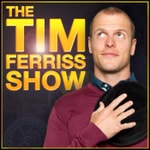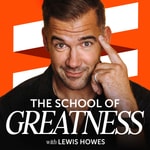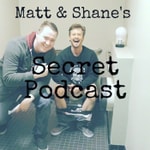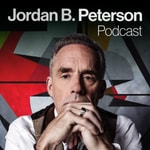The Peter Attia Drive – Détails, épisodes et analyse
Détails du podcast
Informations techniques et générales issues du flux RSS du podcast.
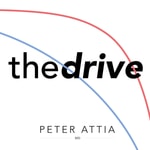
The Peter Attia Drive
Peter Attia, MD
Fréquence : 1 épisode/6j. Total Éps: 405

Classements récents
Dernières positions dans les classements Apple Podcasts et Spotify.
Apple Podcasts
🇨🇦 Canada - medicine
29/07/2025#1🇨🇦 Canada - healthAndFitness
29/07/2025#4🇨🇦 Canada - General
29/07/2025#69🇬🇧 Grande Bretagne - medicine
29/07/2025#5🇬🇧 Grande Bretagne - healthAndFitness
29/07/2025#26🇩🇪 Allemagne - medicine
29/07/2025#9🇩🇪 Allemagne - healthAndFitness
29/07/2025#57🇺🇸 États-Unis - medicine
29/07/2025#1🇺🇸 États-Unis - healthAndFitness
29/07/2025#10🇫🇷 France - medicine
29/07/2025#8
Spotify
🇬🇧 Grande Bretagne - health & fitness
29/07/2025#31↗🇺🇸 États-Unis - health & fitness
29/07/2025#12↘🇬🇧 Grande Bretagne - health & fitness
28/07/2025#32↗🇺🇸 États-Unis - health & fitness
28/07/2025#11↘🇺🇸 États-Unis - health & fitness
27/07/2025#10→🇬🇧 Grande Bretagne - health & fitness
27/07/2025#33→🇬🇧 Grande Bretagne - health & fitness
26/07/2025#33↗🇺🇸 États-Unis - health & fitness
26/07/2025#10→🇬🇧 Grande Bretagne - health & fitness
25/07/2025#35→🇺🇸 États-Unis - health & fitness
25/07/2025#10→
Liens partagés entre épisodes et podcasts
Liens présents dans les descriptions d'épisodes et autres podcasts les utilisant également.
See all- https://peterattiamd.com/subscribe/
309 partages
- https://peterattiamd.com/
299 partages
- https://peterattiamd.com/newsletter/
241 partages
- https://www.facebook.com/peterattiamd/
184 partages
- http://facebook.com/PeterAttiaMD%5dFacebook
32 partages
- http://facebook.com/PeterAttiaMD
4 partages
- https://twitter.com/PeterAttiaMD
182 partages
- http://twitter.com/PeterAttiaMD%5dTwitter
32 partages
- http://twitter.com/PeterAttiaMD
4 partages
Qualité et score du flux RSS
Évaluation technique de la qualité et de la structure du flux RSS.
See allScore global : 63%
Historique des publications
Répartition mensuelle des publications d'épisodes au fil des années.
#315 ‒ Life after near-death: a new perspective on living, dying, and the afterlife | Sebastian Junger
Épisode 315
lundi 26 août 2024 • Durée 02:03:46
View the Show Notes Page for This Episode
Become a Member to Receive Exclusive Content
Sign Up to Receive Peter’s Weekly Newsletter
Sebastian Junger is an award-winning journalist, bestselling author, and previous guest on The Drive. In this episode, Sebastian returns to discuss his latest book, In My Time of Dying: How I Came Face to Face with the Idea of an Afterlife. This episode delves into Sebastian's profound near-death experience and how it became the catalyst for his exploration of mortality, the afterlife, and the mysteries of the universe. They discuss the secular meaning of what it means to be sacred, the intersection of physics and philosophy, and how our beliefs shape our approach to life and death. He also shares how this experience has profoundly changed him, giving him a renewed perspective on life—one filled with awe, gratitude, deeper emotional awareness, and a more engaged approach to living.
We discuss:
- How Sebastian’s near-death experience shaped his thinking about mortality and gave him a reverence for life [3:00];
- The aneurysm that led to Sebastian’s near-death experience [6:30];
- Emergency room response, his subsequent reflections on the event, and the critical decisions made by the medical team [16:30];
- Sebastian’s reaction to first learning he nearly died, and the extraordinary skill of the medical team that save his life [26:00];
- Sebastian’s near-death experience [37:00];
- The psychological impact of surviving against overwhelming odds [48:00];
- Ignored warning signs: abdominal pain and a foreshadowing dream before the aneurysm rupture [54:30];
- Sebastian's recovery, his exploration of near-death experiences, and the psychological turmoil he faced as he questioned the reality of his survival [58:15];
- A transformative encounter with a nurse who encouraged Sebastian to view his near-death experience as sacred [1:03:30];
- How Sebastian has changed: a journey toward emotional awareness and fully engaging with life [1:08:45];
- The possibility of an afterlife, and how quantum mechanics challenges our understanding of existence [1:15:15];
- Quantum paradoxes leading to philosophical questions about the nature of reality, existence after death, and whether complete knowledge could be destructive [1:26:00];
- The sweet spot of uncertainty: exploring belief in God, post-death existence, and meaning in life [1:37:00];
- The transformative power of experiencing life with awe and gratitude [1:53:00]; and
- More.
Connect With Peter on Twitter, Instagram, Facebook and YouTube
#314 ‒ Rethinking nutrition science: the evolving landscape of obesity treatment, GLP-1 agonists, protein, and the need for higher research standards | David Allison, Ph.D.
Épisode 314
lundi 19 août 2024 • Durée 01:58:34
View the Show Notes Page for This Episode
Become a Member to Receive Exclusive Content
Sign Up to Receive Peter’s Weekly Newsletter
David Allison, a leading expert in obesity and nutrition, quantitative genetics, clinical trials, and research methodology, returns to The Drive to explore the evolving landscape of nutrition science and obesity treatment. In this episode, David begins by discussing the intricate relationship between nutrition, obesity, and body composition, emphasizing the multifaceted impacts of food beyond mere calorie intake. David provides a critical analysis of the complexities in nutrition research and their practical implications for tackling obesity. He critiques historical public health policies, addresses the trust issues plaguing nutrition science, and underscores the need for a paradigm shift to more effectively combat obesity. The conversation also delves into the rise of GLP-1 receptor agonists like Ozempic and Mounjaro, exploring their ethical and practical considerations in obesity treatment. The episode concludes with an in-depth look at protein intake recommendations and highlights the significant research gaps that remain in the field.
We discuss:
- The complex relationship between nutrition, body weight, and body composition [2:30];
- The slow progress in addressing obesity and public health despite substantial effort and investment [7:30];
- The very limited success of public health initiatives in curbing obesity [17:15];
- The evolving landscape of obesity research: public health initiatives and the impact of pharmacological success [26:30];
- Rethinking obesity solutions: the need for a paradigm shift [32:45];
- Understanding environmental triggers and embracing a balanced approach to addressing obesity that includes both pharmacological treatments and realistic lifestyle changes [41:45];
- The need for higher standards in obesity research [51:45];
- The rapid success of GLP-1 receptor agonists for weight loss: a discussion on the societal impact and controversy of their growing usage [1:02:15];
- The ethical and practical considerations of obesity drugs: risks, benefits, and motivations for usage [1:11:30];
- The use of GLP-1 agonists by athletes as performance enhancers [1:23:45];
- Unanswered questions about protein intake and health [1:30:45];
- Future research needed to understand basic questions around protein intake [1:45:00];
- David’s weekly newsletter: “Obesity and Energetics Offerings” [1:50:45]; and
- More.
Connect With Peter on Twitter, Instagram, Facebook and YouTube
#306 - AMA #60: preventing cognitive decline, nutrition myths, lowering blood glucose, apoB, and blood pressure, and more
Épisode 306
lundi 17 juin 2024 • Durée 18:15
View the Show Notes Page for This Episode
Become a Member to Receive Exclusive Content
Sign Up to Receive Peter’s Weekly Newsletter
In this “Ask Me Anything” (AMA) episode, Peter provides insights on a broad range of important topics. He delves into the prevention of cognitive decline, the link between cardiovascular disease and Alzheimer's disease, and methods to lower blood glucose, insulin, and apoB. He also addresses nutrition-related queries, exploring the impact of dietary habits on weight loss and longevity, how a person can identify the best diet for themselves, and common nutrition myths. Additional discussions include optimal blood pressure, daily step goals, the benefits of standing versus sitting desks, and much more.
If you’re not a subscriber and are listening on a podcast player, you’ll only be able to hear a preview of the AMA. If you’re a subscriber, you can now listen to this full episode on your private RSS feed or our website at the AMA #60 show notes page. If you are not a subscriber, you can learn more about the subscriber benefits here.
We discuss:
- Overview of topics and episode format [1:40];
- Preventing cognitive decline [5:00];
- How to lower blood glucose and insulin [13:30];
- The relationship between lipids, CVD, and Alzheimer’s disease, and whether statins can increase the risk of neurodegenerative disorders and AD [23:15];
- Reducing apoB levels through exercise and diet [31:45];
- Pharmacological options for lowering apoB [38:00];
- How nutrition impacts longevity via metabolic health, muscle mass, BMD and more [40:15];
- How can someone determine the best diet for themselves? [43:45];
- Nutrition myth: All weight loss is good [46:45];
- Nutrition myth: Metabolic rates are dramatically different among individuals based on genetics [49:00];
- Nutrition myth: Losing weight after a brief period of overeating is impossible [53:45];
- Nutrition myth: GLP-1 agonists are a replacement for a healthy lifestyle [57:45];
- Nutrition myth: There is a single best diet for weight loss [1:03:00];
- Nutrition oversimplification: All calories are created equal [1:05:45];
- Daily step goals [1:06:45];
- The benefits of standing versus sitting throughout the day [1:10:45];
- How to identify the most impactful and easiest-to-implement ways to improve your health [1:12:30];
- The critical importance of emotional health [1:14:30];
- Why supplements should be considered as supportive aids rather than primary solutions in one’s strategy to improve longevity [1:18:00];
- Strategies for reducing high blood pressure [1:20:45];
- Peter’s biggest frustrations with "mainstream health advice" [1:28:00];
- Peter’s chaotic, yet cherished, morning routine [1:31:00]; and
- More.
Connect With Peter on Twitter, Instagram, Facebook and YouTube
#223 - AMA #39: The Centenarian Decathlon, zone 2, VO2 max, and more
Épisode 223
lundi 19 septembre 2022 • Durée 16:51
View the Show Notes Page for This Episode
Become a Member to Receive Exclusive Content
Sign Up to Receive Peter’s Weekly Newsletter
In this “Ask Me Anything” (AMA) episode, Peter describes what it means to exercise with the goal of longevity in mind, including his personal goals, exercise framework, and how he is optimizing for what he refers to as the “Centenarian Decathlon.” He explains the various types of cardiovascular training and how to partition your time between intensity levels (i.e., zone 2 training vs. zone 5 training) to optimize cardiorespiratory benefit. Additionally, Peter dives deep into questions around VO2 max, such as why it’s critical for longevity, how to improve it, and the value in starting VO2 max optimization early in life.
If you’re not a subscriber and are listening on a podcast player, you’ll only be able to hear a preview of the AMA. If you’re a subscriber, you can now listen to this full episode on your private RSS feed or on our website at the AMA #39 show notes page. If you are not a subscriber, you can learn more about the subscriber benefits here.
We discuss:
- Exercise topics to be discussed [1:45];
- Peter’s exercise goals, and the Centenarian Decathlon [4:00];
- Peter’s exercise framework, and how he tracks his MET hours [8:30];
- How to partition your time between low and high intensity exercise to optimize results [13:15];
- Zone 2 exercise: ideal training methods and how to determine your zone 2 level [23:15];
- Rucking as a versatile mode of exercise [31:45];
- Zone 5 exercise: modalities of training, time per week, and other considerations [34:30];
- The importance of knowing your VO2 max, and methods for estimating it [38:15];
- Training methods for improving VO2 max, and realistic targets for improvement [46:00];
- Relationship of VO2max with age and the required fitness levels for daily life activities and exercise [52:30];
- The training necessary to maintain an elite VO2 max throughout life [58:45];
- The value in starting early: the compounding nature of fitness [1:01:45]; and
- More.
Connect With Peter on Twitter, Instagram, Facebook and YouTube
#222 ‒ How nutrition impacts longevity | Matt Kaeberlein, Ph.D
Épisode 222
lundi 12 septembre 2022 • Durée 02:27:23
View the Show Notes Page for This Episode
Become a Member to Receive Exclusive Content
Sign Up to Receive Peter’s Weekly Newsletter
Dr. Matt Kaeberlein is a globally recognized expert on the biology of aging and recurring on The Drive. In this episode, Matt explains his research findings on nutrition as it relates to aging and longevity, including the results from his recent review article in Science. From there, he and Peter dive deep into the literature on calorie restriction (CR), explaining the nuance, benefits for lifespan and healthspan, and potential downsides of CR. He discusses the epigenetic changes that occur with age and potential benefits and downsides of epigenetic reprogramming, often viewed as a panacea for reversing aging. Matt also explains the impact of dietary protein on aging, including the interesting dichotomy around how protein, a critical macronutrient, and rapamycin, a geroprotective molecule, have opposite effects on mTOR. Additionally, he talks about low-protein vs. high-protein diets and their effects on muscle mass and mortality, as well as the impact of IGF-1 signaling and growth hormone on lifespan.
We discuss:
- Challenges with understanding the effects of nutrition and studying interventions for aging [3:30];
- How Peter’s and Matt’s convictions on nutrition and thoughts optimal health have evolved [8:15];
- Calorie restriction for improving lifespan in animal models [16:15];
- Utility of epigenetic clocks and possibility of epigenetic reprogramming [22:00];
- Mutations and changes to the epigenome with aging [31:45];
- Epigenetic reprogramming: potential benefits and downsides and whether it can work in every organ/tissue [35:15];
- First potential applications of anti-aging therapies and tips for aging well [43:00];
- Impact of calorie restriction on the immune system, muscle mass, and strength [47:00];
- Insights from famous calorie restriction studies in rhesus macaques [55:00];
- An evolutionary perspective of the human diet [1:03:45];
- Antiaging diets: Separating fact from fiction—Matt’s 2021 review in Science [1:12:30];
- Mouse models of time-restricted feeding in the context of calorie restriction [1:19:30];
- Nutritional interventions that consistently impact lifespan in mice, and concerns around efficacy in humans [1:27:00];
- Differing impact of calorie restriction when started later in life [1:31:00];
- Lifespan extension with rapamycin in older mice [1:37:15];
- Relationship between protein intake and aging, and mouse studies showing protein restriction can extend lifespan [1:43:30];
- Impact of protein intake on mTOR, and why inhibition of mTOR doesn’t cause muscle loss [1:50:45];
- Low-protein vs. high-protein diets and their effects on muscle mass, mortality, and more [1:55:30];
- The impact of IGF-1 signaling and growth hormone on lifespan [2:06:30];
- Parting thoughts on the contribution of nutrition to healthspan and lifespan [2:19:45];
- More.
Connect With Peter on Twitter, Instagram, Facebook and YouTube
#221 ‒ Understanding sleep and how to improve it
Épisode 221
lundi 5 septembre 2022 • Durée 01:37:03
View the Show Notes Page for This Episode
Become a Member to Receive Exclusive Content
Sign Up to Receive Peter’s Weekly Newsletter
In this special episode of The Drive, we have pulled together a variety of clips from previous podcasts with sleep expert Dr. Matthew Walker to help listeners understand this topic more deeply, as well as to identify which previous episodes featuring Matt may be of interest. In this episode, Matt gives an overview of why we sleep, the stages of sleep, and sleep chronotypes, and he provides tips to those looking to improve their total sleep and sleep efficiency. Additionally, Matt discusses the pros and cons of napping, and gives his current thinking on the effects of blue light and caffeine on sleep. Finally, Matt explains the dangers of sleeping pills and reveals what he believes are the most useful alternatives for someone struggling with sleep, such as those with insomnia.
We discuss:
- Evolutionary reasons to sleep [2:15];
- Stages of sleep, sleep cycles, and brainwaves [10:00];
- Understanding sleep chronotypes and how knowing yours could help you [25:45];
- Defining sleep efficiency and how to improve it [36:15];
- Correcting insomnia: a counterintuitive approach [38:45];
- Pros and cons of napping, and insights from the sleep habits of hunter-gatherer tribes [41:30];
- Sleep hygiene, wind-down routine, and tips for better sleep [50:15];
- The optimal room temperature and body temperature for the best sleep [59:30];
- Blue light: how Matt shifted his thinking [1:08:30];
- Caffeine: how Matt has adjusted his hypothesis [1:14:45];
- The dangers of sleeping pills, useful alternatives, and cognitive behavioral therapy for insomnia [1:19:45];
- More.
Connect With Peter on Twitter, Instagram, Facebook and YouTube
#220 ‒ Ketamine: Benefits, risks, and promising therapeutic potential | Celia Morgan, Ph.D.
Épisode 220
lundi 29 août 2022 • Durée 01:27:36
View the Show Notes Page for This Episode
Become a Member to Receive Exclusive Content
Sign Up to Receive Peter’s Weekly Newsletter
Celia Morgan is a Professor of Psychopharmacology at the University of Exeter who has authored numerous publications on the potential therapeutic uses of ketamine in mental healthcare. In this episode, Celia dives deep into the neurobiology of ketamine, how it affects users, and how it differs from other, more classical psychedelics (LSD, MDMA, PCP, and psilocybin). She explains the potential promise of ketamine as a treatment for recalcitrant depression and addiction, and she details the results from her clinical trials in these areas. She discusses the importance of using ketamine in combination with psychotherapy to maximize its benefits, the potential risks associated with ketamine use, and advice for those interested in the therapeutic use of ketamine.
We discuss:
- Celia’s training and interest in ketamine [2:15];
- The history of ketamine, medical uses, and use as a party drug [3:30];
- Neurobiology and pharmacology of ketamine [8:15];
- Ketamine regulation and abuse, and how it compares with psychedelics and other molecules [18:15];
- Ketamine as a therapeutic for depression [30:45];
- The brain under the influence of ketamine and theoretical mechanisms for its anti-depressive effects [48:00];
- Risks and concerns with overusing ketamine, and what an intermittent or maintenance dose might look for a patient [57:15];
- Treating addiction with ketamine: Celia’s studies of alcohol dependance [1:04:00];
- Advice for people considering the therapeutic use of ketamine [1:19:45];
- More.
Connect With Peter on Twitter, Instagram, Facebook and YouTube
#219 ‒ Dialectical behavior therapy (DBT): skills for overcoming depression , emotional dysregulation, and more | Shireen Rizvi, Ph.D., ABPP
Épisode 219
lundi 22 août 2022 • Durée 02:16:28
View the Show Notes Page for This Episode
Become a Member to Receive Exclusive Content
Sign Up to Receive Peter’s Weekly Newsletter
Shireen Rizvi is a Professor of Clinical Psychology and Psychiatry at Rutgers University, where she is also the Director of the Dialectical Behavior Therapy Clinic. This episode focuses specifically on dialectical behavior therapy (DBT), a skills-based technique which was originally developed to treat borderline personality disorder (BPD) and has since been adapted to treat depression and other mental health conditions, as well as to help people who have difficulty with emotional regulation and self-destructive behaviors. Shireen explains the origins of DBT and how its creator, Dr. Marsha Linehan, came to find a need for something beyond cognitive behavioral therapy (CBT) when attempting to treat patients with suicidal behavior. From there, Shireen dives into how DBT works to resolve the apparent contradiction between self-acceptance and change to bring about positive changes in emotional regulation, interpersonal effectiveness, mindfulness, distress tolerance, and more. She also provides examples for how one can apply specific skills taught with DBT such as accessing the “wise mind,” applying radical acceptance, using the “DEAR MAN” technique, and utilizing an emotion regulation skill called “opposite action.” Finally, she explains how the tenets of DBT offer benefits to anyone, and she provides insights and resources for people wanting to further explore DBT.
We discuss:
- The basics of dialectical behavior therapy (DBT) and how it differs from cognitive behavioral therapy (CBT) [3:00];
- Treating depression with CBT: history, effectiveness, and how it laid the groundwork for DBT [8:15];
- Marsha Linehan’s inspiration for developing DBT [16:00];
- Explaining borderline personality disorder (and associated conditions) through the lens of DBT [20:00];
- How work with suicidal patients led to the development of DBT—a dialectic between change and acceptance [35:30];
- Details of DBT: defining the term “dialectical” and how to access the “wise mind” [44:30];
- Practicing mindfulness and radical acceptance in the context of DBT [51:00];
- Applying “radical acceptance” to tragic scenarios [1:02:00];
- The five domains of skills taught in DBT [1:07:15];
- Why Marsha chose borderline personality disorder as her focus when developing DBT [1:13:30];
- Is there any benefit in doing DBT for someone without a pathological condition? [1:15:45];
- The DEAR MAN skill of DBT [1:20:00];
- Adapting DBT skills for adolescents and families [1:31:00];
- Identifying vulnerability factors, increasing distress tolerance, and the impact of physical pain [1:33:45];
- The DBT chain analysis: assessing problem behaviors and identifying vulnerability factors [1:44:30];
- Why the regulation of emotions can be so challenging [1:50:30];
- The importance of mindfulness skills in DBT [1:53:30];
- Opposite action: an emotion regulation skill [1:57:00];
- Advice for those wanting to explore DBT [2:03:15];
- Finding a well-trained DBT therapist [2:08:15];
- More.
Connect With Peter on Twitter, Instagram, Facebook and YouTube
#218 - AMA #38: Can you exercise too much?
Épisode 218
lundi 15 août 2022 • Durée 17:04
View the Show Notes Page for This Episode
Become a Member to Receive Exclusive Content
Sign Up to Receive Peter’s Weekly Newsletter
In this “Ask Me Anything” (AMA) episode, Peter dives deep into the question of whether there is such a thing as “too much exercise.” He explores the theoretical “J-curve” relationship between exercise and longevity, whereby mortality risk declines with increasing activity levels only to see an uptick above a certain exercise volume threshold. While Peter maintains that exercise is perhaps the single most important tool we have to live longer and live better, he explains the challenges involved in identifying an optimal dose. He takes a hard look at studies—many of which have contradictory results—to highlight major limitations in methodology and how readers could be misled. Additionally, he discusses the rare, but real, risks associated with extreme levels of physical activity and concludes by weighing the benefits against the risks of exercise.
If you’re not a subscriber and listening on a podcast player, you’ll only be able to hear a preview of the AMA. If you’re a subscriber, you can now listen to this full episode on your private RSS feed or on our website at the AMA #38 show notes page. If you are not a subscriber, you can learn more about the subscriber benefits here.
We discuss:
- How exercise reduces risk for all-cause mortality [2:40];
- Defining the metric called “MET” and how it’s useful for evaluating different exercises [8:00];
- The challenge in determining the optimal exercise doses and the limitations of methods used to study the effect of exercise [13:45];
- Using VO2 max as a proxy for fitness to better predict mortality risk [19:30];
- Reviewing data which support the theory of a “J-curve” relationship between exercise and longevity [25:00];
- Importance of understanding p-values and statistical significance [33:45];
- Deconstructing the studies that show a J-curve: major limitations and how one could be misled [37:00];
- Peter’s takeaways on the theoretical “J-curve” relationship between exercise and longevity [51:30];
- Risk of sudden cardiac death from vigorous physical exertion [54:00];
- Atrial fibrillation associated with extreme levels of exercise [1:00:15];
- Parting thoughts: benefits of exercise far outweigh the risks [1:04:15]; and
- More.
Connect With Peter on Twitter, Instagram, Facebook and YouTube
#217 ‒ Exercise, VO2 max, and longevity | Mike Joyner, M.D.
Épisode 217
lundi 8 août 2022 • Durée 01:52:50
View the Show Notes Page for This Episode
Become a Member to Receive Exclusive Content
Sign Up to Receive Peter’s Weekly Newsletter
Mike Joyner is a physician-researcher and one of the world’s leading experts on human performance and exercise physiology. In this episode, Mike discusses how to combat age-related declines in health and fitness levels by using various modes of exercise to improve lifespan and healthspan. Mike explains the impact of exercise on the autonomic nervous system, blood pressure, heart rate, heart rate variability, heart rate recovery, and max heart rate. He dives deep into VO2 max, including how it’s measured, what is driving it, and how to improve it. Mike provides training insights for the average person, including training volume and exercise intensity as well as simple metrics to track. Furthermore, he gives his take on the theoretical “J-curve” relationship between exercise and longevity, as well as whether possible health dangers may be associated with excessive exercise.
We discuss:
- Mike’s training as an anesthesiologist and interest in exercise physiology [2:30];
- How exercise increases longevity [7:00];
- The impressive data on the benefits of exercise [9:45];
- The Centenarian Olympics and other ways to mitigate age-related decline in strength and stability [15:00];
- The violent dropoff in strength and activity with age and how exercise preserves fitness in old age [19:00];
- Benefits of exercise on mortality and fracture risk, and the interplay of nutrition and exercise [22:00];
- How exercise benefits the autonomic nervous system and why this plays an important role in our health [26:30];
- VO2 max, heart rate recovery, heart rate variability, and other metrics of fitness positively impacted by exercise [28:30];
- Reduction in all-cause mortality with increased fitness levels and VO2 max [32:45];
- Does the relationship between exercise and longevity follow a J-curve? [40:00];
- Mitigating age-related decline in fitness by elevating your VO2 max at a young age [46:15];
- Breaking down the variables that drive VO2 max [54:30];
- Learning from elite athletes: Training regimens, aerobic efficiency, and other impressive metrics [1:00:15];
- Health benefits of light exercise for the average person [1:09:00];
- Simple training metrics to track, and Mike’s current exercise regimen [1:11:15];
- How to boost your VO2 max, and the importance of form and tempo with interval training [1:18:15];
- Training advice for the average person [1:25:15];
- Why professional athletes have longer careers than they’ve had in the past [1:27:30];
- Use of performance-enhancing drugs in professional sports [1:29:45];
- Can the miracle of exercise be put in a pill? [1:36:00];
- Mike’s current research and questions he’s most interested in answering [1:39:00];
- Use of convalescent plasma to treat COVID-19 [1:41:15];
- Parting thoughts on the current state of fitness and exercise in society [1:47:15];
- More.
Connect With Peter on Twitter, Instagram, Facebook and YouTube


